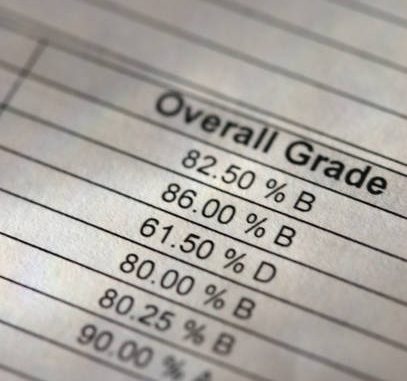
Homeschool Grading Policy-Transcripts and Grades
Homeschool Grading Policy, Many homeschooling parents operate with the assumption that grading and learning don't go together, and that grading, is a recent discovery and should be not used in homeschool. Across the years, instructors "teach to the test" to obtain expert perception and pay. Some instructors are guilty of changing student answers on standardized tests to guarantee specific results. While some of this may be true to some extent, "grading" is the criteria by which learners we judge at middle and high school levels.
Homeschool Grading Policy
It's the conventional means by which GPAs (grade point averages) are built. Offering a one-page record to a university admission's officer which shows the courses and grades makes their work more straightforward when it comes to analyzing the student for admittance. GPA's and SAT records are often merged and assist colleges and universities to extend financial scholarships to Freshmen they think will benefit at their schools.
Homeschool Grading Policy
The issue then for most of us, positively at the high school level, is not if we will grade, but how we will proceed. It's essential to assess your student's performance in such a way that the grade obtained reflects effort and achievement. For primary age students, first through sixth grade, regular testing or grading on a weekly basis is not needed. Every lesson is an "analysis" where you can determine to remediate or offer more study they have not mastered satisfactorily. It will also provide you with a sequential, objective evaluation tool by which you can measure and verify your student's progress when you test him later this spring.
Homeschool Grading Policy
For middle school and high school level students, rating math is a different matter. Here is a system to keep in mind that makes deciphering your student's progress simple: Grade on a quarter system.
If your student's math book contains 140 lessons you can assess him at the end of the first quarter which is typically eight or nine weeks in length from the period you start, lessons 1 through 35, including tests, should be finished. The grade earned for this first quarter will be a grade in progress. This grade is not part of the transcript.
At the end of the second quarter, lessons 35 through 65 including tests are complete. Typically the grade for this second quarter is averaged with the rank of the first quarter to get a semester grade, the one that goes on the transcript and is part of the permanent transcript. Some parents decide to consider the second quarter a little more heavily than the first if the student is functioning better. Since most math theories build on prior learning, and if the student is showing growth and a higher degree of knowledge, this is indeed a fair decision.\
Homeschool Grading Policy
Here's an instance. Suppose your student is investigating Algebra 1 this year. His everyday work combined with test scores comes out to a 72%, a "C." You know he can do better. In the second quarter, he puts more effort into this course and makes sure he knows the concepts before taking each test. His plan and effort pay off. In the second quarter, he increases his overall grade twelve points to an 87%, a strong "B." With strict averaging of both quarters, however, his semester grade results in a 79%, a high "C," but a "C" nonetheless.
If you let the numbers determine the grade and you will put a "C" down for his first semester. In my way of thinking, the grade about "the numbers." it's about what has been learned and achieved. I would justify giving him a "B" by weighing the second quarter more, maybe 60 to 65%.
Homeschool Grading Policy
Here's what the formula looks like:
Previously weighing each quarter 50%
50% of 73 percent (.5 times 73) is 36.5
50% of 85 percent (.5 times 85) is 42.5
Final Grade: 79%, a C
Now weighing the first quarter 40%, the second 60%
40% of 73 percent (.4 times 73) is 29.2
60% of 85 percent (.6 times 85) is 51
If the grade I deemed the student earned and I wanted to give was a "B," I wouldn't wait to modify the method further to arrive there. Academic purists, whose idea of "justice" I may have insulted, might cry "bad call" in the knowledge of my efforts, but if not this, it will be something different.








